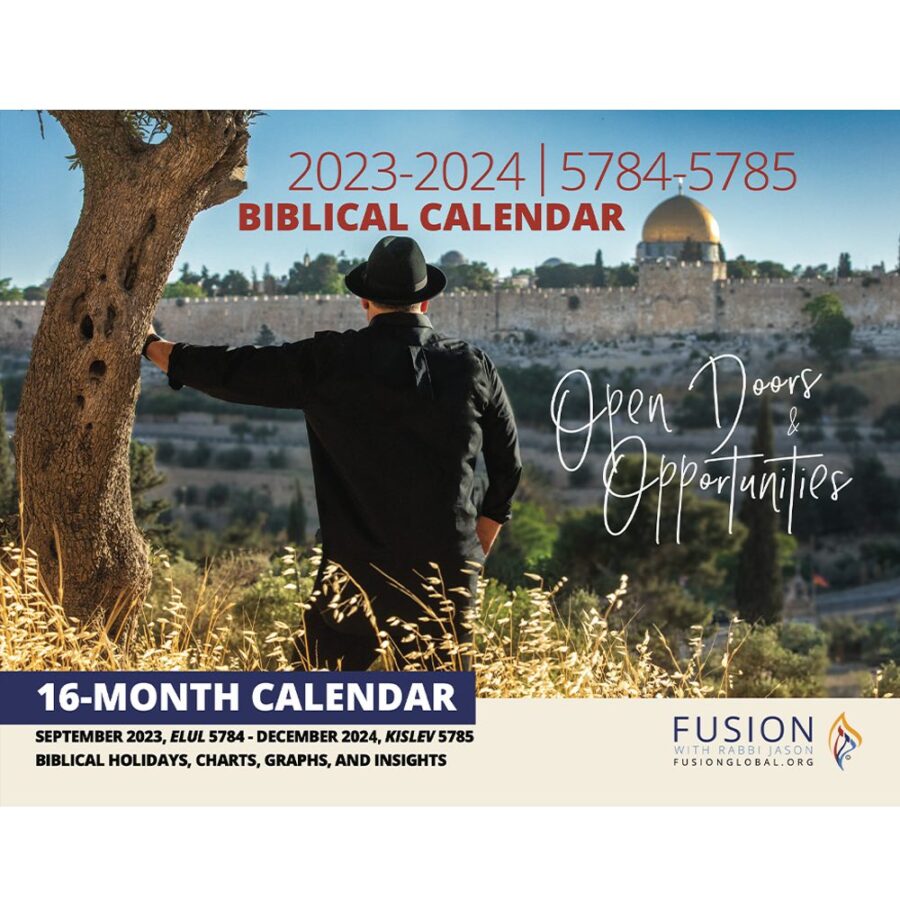No Shalom for the Wicked | Rabbi Jason Sobel

What do I mean by, “No Shalom for the Wicked”? Join me, Rabbi Jason, as I walk through a passage of Scripture many Christians relate to the Lord’s Second Coming. The insights and revelation on the “days of Noah” will guide you as you endeavor to live a life of holiness and favor in your generation.
+++++
As Yeshua-Jesus neared the end of His earthly ministry, He said:
“For just as the days of Noah were, so will be the coming of the Son of Man. For in those days before the flood, they were eating and drinking, marrying and giving in marriage, until the day Noah entered the ark. And they did not understand until the flood came and swept them all away. So shall it be at the coming of the Son of Man. Then two men will be in the field, one taken and one left. Two women will be grinding at the mill, one taken and one left. Therefore stay alert; for you do not know what day your Lord is coming. But know this, that if the master of the house had known what time the thief was coming, he would have kept watch and not let his house be broken into. So you also must be ready, for the Son of Man is coming at an hour you do not expect.” (Matt 24:37-44)
In this passage, we find a critical biblical principle at work: there is resonance between the end and the beginning of a thing. In other words, we can be better prepared for the future as we diligently consider the past. Who doesn’t want to be ready at the coming of Messiah? With this in mind, let’s look at the “days of Noah.”
The Torah informs us that the earth “was ruined because all flesh had corrupted their way upon the earth” (Gen 6:12). We can think about this on two levels—general and specific. Generally speaking, this verse conveys human carnality, a preference for earthly rather than spiritual things. Let’s connect this back to Yeshua’s statement about the coming of the Son of Man. In that day, people will focus on this world and what it has to offer. Perhaps this is why the Lord instructed His disciples to “seek first the kingdom of God and His righteousness, and all these things shall be added to you” (Matt 6:33). Going back to the Garden of Eden, humans have always struggled with sinful desire (the Tree of Knowledge was ḥāmaḏ / חָמַד desire, covet, lust). To surrender to carnality is death, but to seek God’s Kingdom is “righteousness and shalom and joy in the Ruach ha-Kodesh” (Rom 14:17).
More specifically, in Jewish thought, the corruption in the days of Noah was a manifestation of idolatry. Why idolatry? Consider the description of the wicked in Job 21:14-15:
they say to God, ‘Leave us alone!
We have no desire to know Your ways.
Who is Shaddai that we should serve Him?
What would we gain if we pray to Him?’
That emphasis on “gain” in Job ties in profoundly to what the Apostle Paul stated in his epistle:
“put to death what is earthly in you—sexual immorality, impurity, lust, evil desire, and greed— for that is idolatry” (Col 3:5 emphasis added). Covetousness is unquenchable. Too much of anything is never enough. This trajectory ultimately leads to theft. And idolatry is its own form of theft, as it is robbing the one true God of the worship He is due. Similarly, sexual immorality and physical violence also are forms of theft; the former robs people of their dignity, while the latter takes away their very lives.
Yeshua’s words in the “Olivet Discourse”1 take a seemingly abrupt turn when He spoke of two women and two men—one is taken and another left. What does this have to do with the days of Noah? Separation. In the days of Noah, God separated eight people from the rest of the population. The Scripture tells us that the reason for this was that “Noah found favor in Adonai’s eyes” (Gen 6:8). The Hebrew word translated “favor” is חֵן (ḥēn) which is significant because it is the reverse of the Hebrew spelling of “Noah”—נֹחַ! Noah’s name means “rest,” and he serves as a sign and “shadow” of the Messiah who came to “comfort us from our work and from the pain of our hands because of the ground which Adonai cursed” (Gen 5:29).
God judged the corruption—idolatrous carnality—of the earth by sending the Flood. It’s difficult to imagine the crashing waves and heaving waters of such an epic event. God judged the wicked by the relentless downpour for forty days and nights. This scene echoes in the words of the Prophet Isaiah:
The wicked are like a troubled sea,
for it cannot rest,
and its waters toss up mire and dirt.
“There is no shalom,” says my God
“for the wicked.” (Isa 57:20-21)
We prepare for the coming of the Son of Man to the extent that we surrender to the favor (ḥēn) of God and seek first His Kingdom. Genuine worship is expressed in saying yes daily to the invitation that the “true and better” Noah extended when He said, “Take My yoke upon you and learn from Me, for I am gentle and humble in heart, and ‘you will find rest for your souls’” (Matt 11:29 emphasis added).
Unless otherwise noted, all biblical passages referenced are in the Tree of Life Version.
1You can read Yeshua’s words in Matthew 24 and 25, Mark 13, or Luke 21.

"Thank you Rabbi Jason! I love your teachings! I have difficulty understanding the Old Testament…you reveal truths I’ve never understood."
What is Fusion with Rabbi Jason?
It is in looking back at what God has done that we can see forward to His future plans for us. “For I know the plans I have for you,’ declares the Lord, plans to prosper you and not to harm you, plans to give you hope and a future” Jer 29:11.
At Fusion Global with Rabbi Jason Sobel, we want to add definition to your faith as we restore the lost connection to our ancient roots and rediscover our forgotten inheritance.



